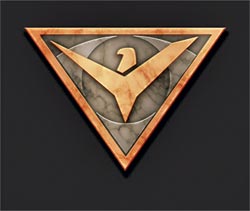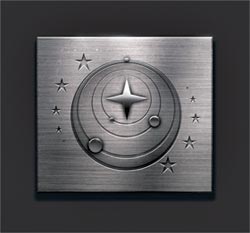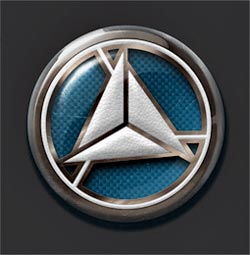

Elite:Dangerous Lore. Galactic Power Blocs
The Empire

Originally founded by Marlin Duval, who led the colonization of the Achenar system in the mid 23rd century, the Empire is based on a ‘cliens’ system. Society is strictly stratified, with people being able to move between strata (lower strata particularly) based on money, patronage and influence.
The Empire values both status and honour very highly indeed. So whilst it is acceptable to flaunt wealth, treating people well is a question of honour – and this includes slaves. Having an unpaid debt is seen as utterly dishonourable – an honourable Imperial citizen would sell themselves into slavery to clear a debt they couldn’t otherwise clear.
Law is seen and enforced very differently in the Empire. Senators are responsible for enforcing the Emperor’s laws, but the Senators themselves are above the law. They can order executions, and can even kill people themselves, though sometimes (rarely) they may be held to account for their actions by the Emperor. Some Senators are warlike and may take over systems in the name of the Empire, to get the spoils, and they may get a good deal of support as a result. Some Senators do not tolerate slavery, and regularly speak out against it, but from the basis of honour – not suggesting it should not be legal.
In the Empire, very little is illegal, but many things are frowned upon, like excessive use of narcotics.
The Federation

To an outsider, the hierarchy of Federation society is based on democratic principles – people vote within their System/State to elect Congressmen, and a President with an 8-year term and a ‘vote of confidence’ after the first 4 years.
However, corporate loyalty oils the machine, and Federation space is a battleground of commerce. Commercial organisations compete as aggressively as the law will allow for the time and attention of the Federal citizen, who goes through life bombarded by advertising.
Corruption is not unusual – individuals defend it shamelessly when caught as ‘getting one over the system’. Social class is only determined between ‘haves’ and ‘have-nots’. There is a lot of poverty about, as well as conspicuous wealth.
The huge gross domestic product (GDP) of the Federation economy funds a large, well-equipped Federal Navy which projects its values and influence.
Culturally the Federation is tolerant of some things (like religions) but utterly intolerant of drug-taking, political activism, and certain cultures. A great many things are illegal, like slavery, cloning and certain narcotics.
Federal law is based on an agreed Constitution. People have rights and freedoms, enshrined by this agreement. Local ‘State’ law prohibits other trafficking to a greater or lesser degree. Things like ship-based weapons, personal weapons, other milder drugs and alcohol are banned in some systems.
The media drives a culture of celebrity. Top ranking politicians, social commentators, entertainers and super-rich all command a great deal of media attention. This provides a massive distraction for the populace, to the extent that foreign wars conducted by the Federation on their behalf get little media attention. This has gone on for many hundreds of years, and there is no sign of it changing.
The Alliance

The Independent Alliance of Systems arose out of a need for cooperation. Centuries of warfare and both Imperial and Federal meddling in a great many otherwise peaceful independent systems caused various small alliances to form and then get broken up over the centuries.
The Alliance formed from a number of culturally different systems with a unified goal – to provide a stronger voice in the galaxy for its member systems and ultimately to defend them against unwelcome attention from the big powers. The Independent Alliance is culturally very varied and leadership of the Alliance (the presidency moves between member systems annually) has been described as ‘challenging’. Seeking agreement between the member systems is generally a tortuous process, usually ending up with a great deal of compromise.
Militarily, cooperation has been more successful. Each member system contributes a portion of its navy to the Alliance Defence Force – the total contribution proportional to its GDP. It is led by the six-strong Council of Admirals (one from each of the largest member navies), but they can act swiftly without government approval, which has proved very effective, and over the years there has been little disagreement between the admirals.
Contributed vessels generally bear the decals of their own navy, but have an additional Alliance Defence Force decal applied while they are with the group – so the culture of identity and independence (and rivalries) applies here too.

